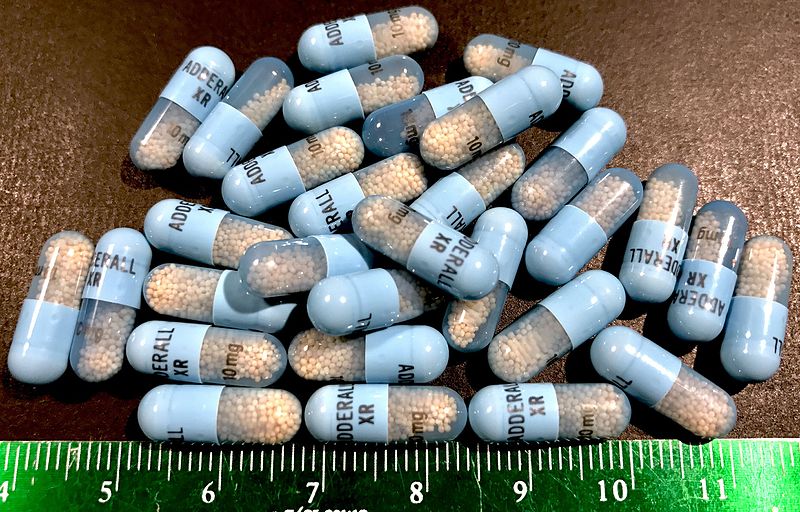In almost all facets of competition, new technologies and supplements have raised the ceiling on human potential. In sports, this is seen through Performance Enhancing Drugs (PED’s) such as anabolic steroids. However, a new PED has burst into the scene and has become a daily habit of many adults, namely university students. Many universities, including UBC, have begun to implement guidelines on its use. This drug is most commonly known as Adderall™, or, to the avid science nerd, d-amphetamine. But how does it compare to other cognitive enhancers, like coffee?
Adderall: A Quick Rundown
Adderall is an amphetamine used to treat people with attention disorders (e.g. ADHD). As a stimulant, it raises nervous activity in your body and allows you to remain alert for longer. While the exact “nitty gritty” of how it works is unclear, it is known that it increases dopamine and norepinephrine in your brain.
Caffeine: A Stimulant Sans Stigma
There is another stimulant drug which is commonly used without stigma and is sold on the corner of almost every block in Vancouver… CAFFEINE. By increasing the amount of ATP hydrolysis in your brain, caffeine causes you to feel more energized.

Photo of a cappuccino coffee Source: https://commons.wikimedia.org/wiki/File:Cappuccino_at_Sightglass_Coffee.jpg
Caffeine vs. Adderall: What’s the Difference?
Caffeine and Adderall are both stimulants that serve a similar purpose: increasing daily productivity. How come there is stigma surrounding one and not the other? Well, while a cup of coffee a day does not have serious long-term side effects, taking Adderall regularly, especially in unprescribed doses, has been shown to cause negative side effects. These may include:
- Increased heart rate/blood pressure
- Anxiety
- Insomnia
- Addiction
- Physical dependence
- Risk of heart attack
- Risk of cardiac arrhythmia (irregular heartbeat)
Video that outlines the side effects of Adderall
Source: https://www.youtube.codrugsm/watch?v=ifutqKQ6KQE&t=1s
Breaking Bad Habits
Since it is an amphetamine, it is very similar in structure and effect as the infamous drug methamphetamine, also known as “crystal meth”. Although methamphetamine is rarely used medically due to higher toxicity, the similarities should not be ignored. The increase of dopamine in the brain causes users to feel bliss and euphoria, which can lead to psychological addiction. Furthermore, many users become physically dependent on the drug and report that their ability to concentrate is WORSE than it was originally when they are not taking the drug.
Do you Really Need It?
The lines are blurry between someone who “needs” Adderall and someone who is taking it when not necessary. It has become increasingly popular as a study aid and various ethical issues have arose due to its performance enhancing effect.
Friendly Pointers
Although I am not a physician, nor am I here to guilt-trip you, I would advise you to look into alternatives to enhancing your efficiency when studying. Here are a few that may be of interest to you:
- Caffeine
- Exercise (I am a keen advocate for this one)
- Good study habits (e.g. planning your days, taking breaks, balancing social life)
By: Juan Gomez

